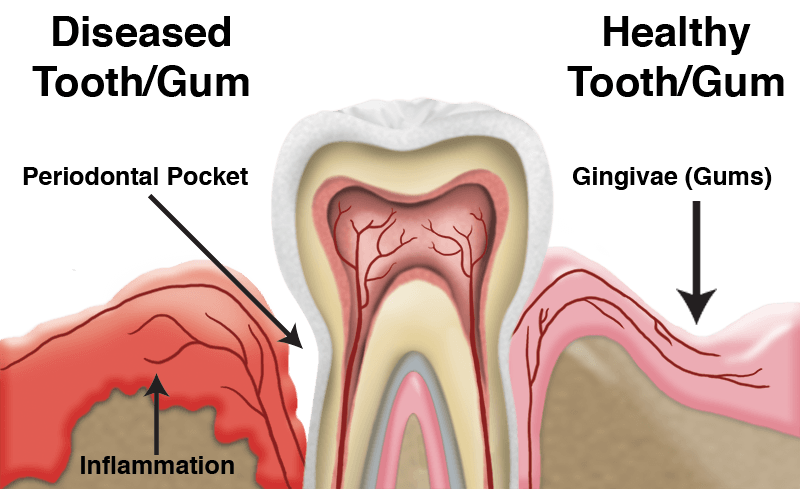
If you know someone or struggle with diabetes yourself, you are very aware that this disease cause harm to the heart, eyes, kidneys, nerves and other important functions and organs in the body. However, did you know that diabetes can also wreak havoc and affect your mouth too? So to answer the question, “Yes. Diabetes and oral health ARE connected.”
According to Healthline, the statistics are staggering:
The ability to process sugar is what is directly affected by Diabetes. Of course, everything we eat is used to fuel our bodies as energy by being turned into sugar. There are two types of Diabetes, Type I and Type II.
The body doesn’t make enough of the hormone called insulin in Type I Diabetes. In Type II Diabetes the body stops responding to insulin. High blood sugar levels are a result in both of circumstances.
If you know someone or struggle with diabetes yourself, you are very aware that this disease cause harm to the heart, eyes, kidneys, nerves and other important functions and organs in the body. However, did you know that diabetes can also wreak havoc and affect your mouth too?
Periodontal Disease (Perio Disease or Gum Disease) is something that people who have diabetes often struggle with. Periodontal Disease is an infection of the bone and gum that holds your teeth in place. This disease can lead to tooth loss and make it difficult and painful to chew. Another symptom is dry mouth which is often a symptom of diabetes that has not yet been detected. Dry mouth can cause ulcers, infections, soreness and tooth decay and if you are a smoker, your habit makes all of these problems worse.
Many people associate symptoms of diabetes to feeling excessively thirsty and needing to urinate often or you may experience fatigue or weight loss. These symptoms are typical if you have high blood sugar. If your blood sugar falls too low, you could lose consciousness.
You may even experience symptoms in your mouth as well that can include:
We all have bacteria in that lives in our mouths, but if they make their home in your gums, the result can be Periodontal Disease. Periodontal Disease, also known as Perio Disease and Gum Disease, is chronic and causes inflammation that can destroy your gums which are the tissues that hold your teeth and your bones in place.
Gum Disease affects almost 22% of people diagnosed with Diabetes and is the most common dental disease of this group.
The key to prevention of mouth problems as a diabetic is good control over your blood glucose. If you are unable to control your blood glucose levels, gum disease is often more prevalent and more severe than in diabetics with more control over this issue. In addition to blood glucose control, the best line of defense to help diabetes and oral health is daily brushing, flossing and regular dental appointments with Dr. Travis Roberts at Adams Dental Group.
Related Article: 6-Month Dental Appointment: Why It’s Important
Dr. Roberts and his expert Team at Adams Dental Group can help you manage your diabetes! How? By having deep cleanings done at your regularly scheduled dental appointments!
Communicate with Dr. Roberts and ask him to share additional oral hygiene tips. Of course, make sure you are brushing and flossing twice daily and don’t forget to control your blood sugar levels.
The progression of your diabetes can be decreased if you are able to improve your blood sugar control.
Related Article: Perio Scaling: Treating a Creepy Problem – Gum Disease
A combination of professional care, from Dr. Roberts, and self-care is essential for keep your smile healthy and your body healthy too! Here is an easy 5-Step Plan for you to follow:
Travis A. Roberts and his experienced, friendly team at Adams Dental Group offer affordable family dentistry and gentle dental care in the Kansas City, KS area. We have two locations that are conveniently located and offer appointment times Monday through Friday to meet your needs. At Adams Dental Group, we provide most dental services, from family and general dentistry to specialty procedures, including dental implants, dentures, endodontic or root canal treatment, teeth whitening, cosmetic dentistry and much more. We accept most dental insurance plans and offer affordable financial solutions for any budget. Call us at our West location (913) 296-8030 or our East location (913) 621-3113 to schedule an appointment.
Dr. Travis A. Roberts, DDS November 28th, 2017
Posted In: Periodontal | Gum Disease
Tags: diabetes and oral health